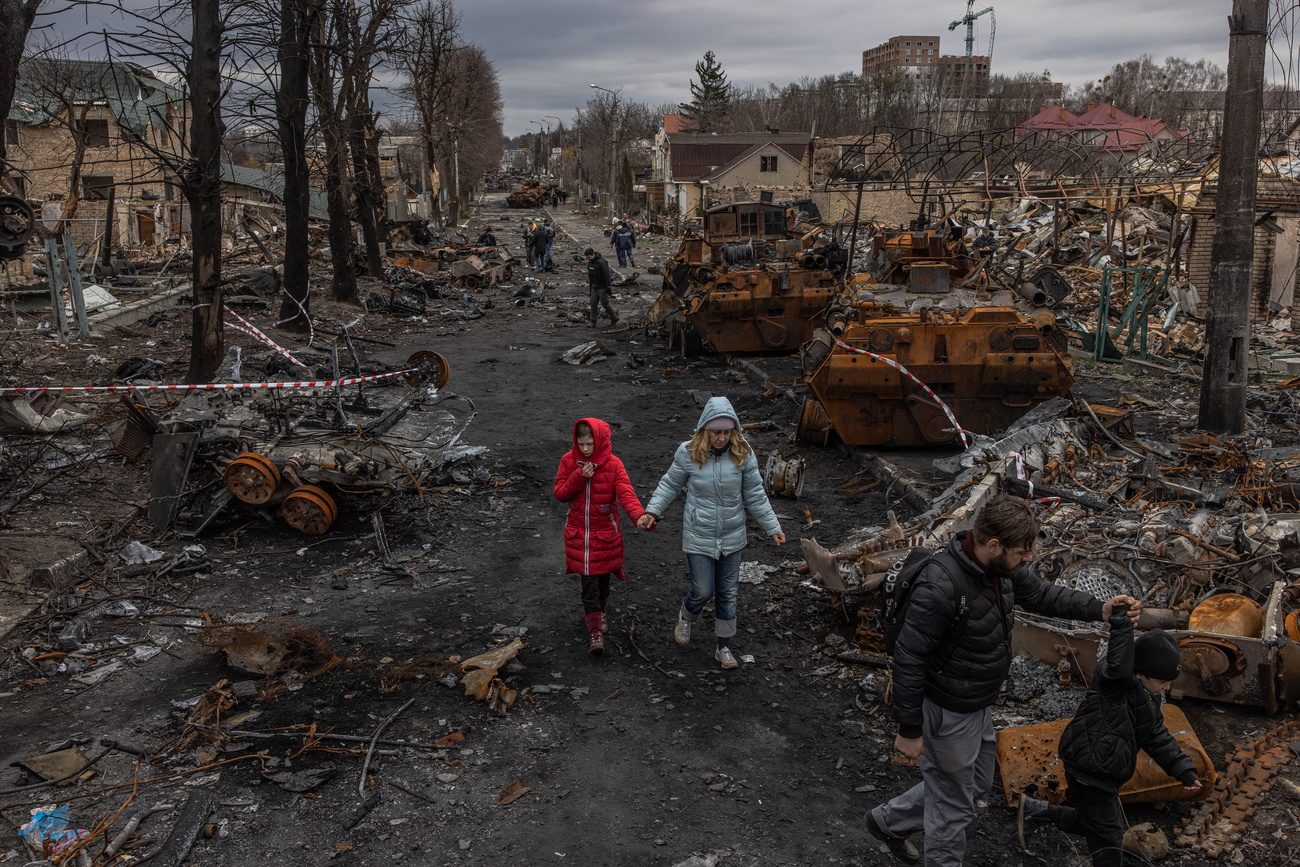
Switzerland has frozen CHF7.5bn in assets under Russia sanctions

Switzerland has so far frozen some CHF7.5 billion ($8 billion) in funds and assets under sanctions against Russians to punish Moscow’s invasion of Ukraine.
These are funds in frozen accounts and properties in four cantons, said Erwin Bollinger, head of the Bilateral Economic Relations Division at the State Secretariat for Economic Affairs (SECO) at a media conference in Bern on Thursday.
“Switzerland has thus frozen more funds than any other country. The Netherlands has blocked CHF500 million, other countries have not provided any information,” he said.
Bollinger said the government intended to continue to apply sanctions decided by the European Union. “The Embargo Act does not provide for autonomous sanctions. Moreover, sanctions are only effective if they are broadly based. Currently, 24 sanctions are in place.”
He referred to an estimate by the Swiss Bankers Association of CHF150-200 billion worth of overall Russian wealth in Swiss banks.
“But not every Russian person is sanctioned. At the moment, just under 900 people are sanctioned. The blocked assets are therefore only a fraction of the assets in Switzerland,” he said.
“As you can imagine, it’s often very complex to determine the effective control [of assets]. Funds are thus in part blocked provisionally by banks. The amounts reported are only a snapshot,” he added.
“The tendency is to block more than would be necessary.”
Ukrainian pressure
Thursday’s report marked an increase from an update two weeks ago, when Bollinger said Switzerland had frozen around CHF5.75 billion worth of Russian assets.
Ukrainian President Volodymyr Zelensky last month heaped pressure on Switzerland – a popular destination for Moscow’s elite and a holding place for Russian wealth – to identify and freeze assets of hundreds of sanctioned Russians more quickly.
Bollinger said Swiss officials had met Ukrainian government representatives on Wednesday to discuss implementation of the sanctions, but he gave no details.

In compliance with the JTI standards
More: SWI swissinfo.ch certified by the Journalism Trust Initiative






























You can find an overview of ongoing debates with our journalists here . Please join us!
If you want to start a conversation about a topic raised in this article or want to report factual errors, email us at english@swissinfo.ch.